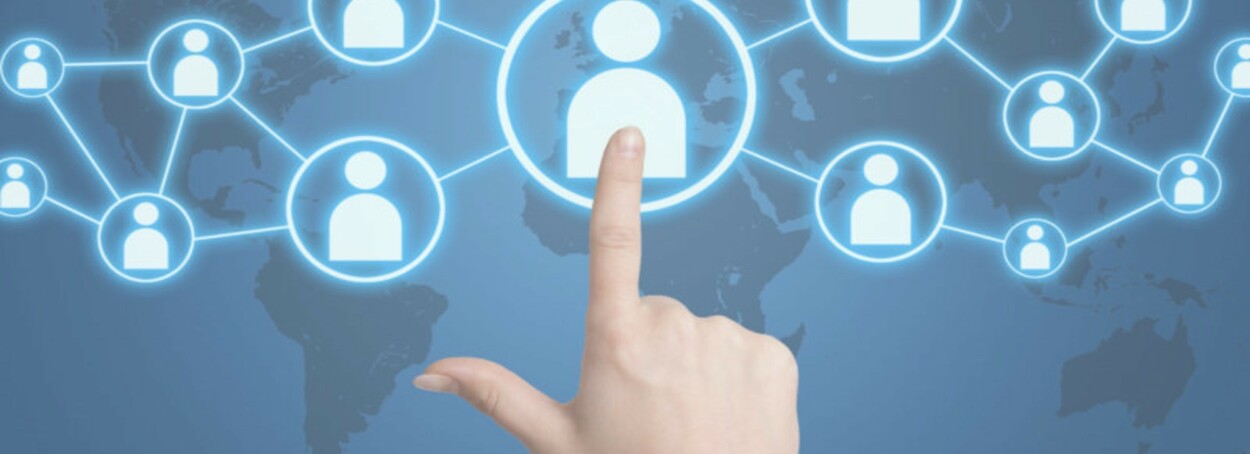

On 18 May, the EU4Digital networking event on ICT innovation ecosystem development brought together participants from the six Eastern partner countries and the leading EU organisations supporting ecosystem building for innovative start-ups and SMEs. The event discussed the role and importance of expert communities and ecosystem builders in developing innovation ecosystems.
The event hosted representatives of key EU organisations, who presented initiatives and capacity building projects for ecosystem development. The organisations included:
- Startup Europe Regions Network (SERN).
- European DIGITAL SME Alliance.
- Federal Association of ICT-SMEs of Germany (BITMi).
The networking event attracted around 70 participants in total and 51 public and private sector organisations from the Eastern partner countries. The discussion was held among the representatives of business support organisations, networks and associations, tech parks, as well as ministerial level representatives and agencies coordinating the development of innovation ecosystems in the Eastern partner countries.
The event was opened by EU4Digital Facility Team Leader Artūras Piliponis, who introduced the EU4Digital programme and aims of the networking event.
This was followed by the keynote speech about ‘Understanding the ICT entrepreneurial ecosystems in the Eastern partner countries and the role of an ecosystem builder’ by Jesus Lozano, Senior Expert of ICT Innovation Team at the EU4Digital Facility. Mr. Lozano defined the ICT innovation ecosystem as the union of public and private entities to promote the creation of new innovations and companies, and ensure their success by offering them access to knowledge, capital, market and resources (facilities). Then, referring to the recently developed ‘Guide for building the ICT entrepreneurial ecosystems in the Eastern partner countries: maturity analysis and recommendations’, he overviewed the entrepreneurial ecosystems maturity analysis of the Eastern partner countries and emphasised the need for ecosystem builders, who would link together the efforts of private and public sector actors. The role of expert communities is also very significant because they support governments with subject matter expertise to take strategic decisions in terms of ecosystems development. Mr. Shota Murtskhvaladze, Board Member of the Georgian ICT Cluster, raised a discussion on government institutions’ participation in the market.
The networking on ICT ecosystems development was continued by Chiara Frencia, SERN Board Member who presented ‘Startup Europe Regions Network value proposition’. Ms. Frencia introduced the benefits of SERN for associations, accelerators, incubators, registered training organisations (RTO), universities, local authorities, and development and innovation agencies aiming at the ecosystem development of start-ups and SMEs. The services of the organisation are also accessible to the stakeholders of the Eastern partner countries via free membership. The speaker outlined SERN’s initiatives in the areas of innovation procurement, financial instruments for innovation, workplace innovation and conjunction of ICT and arts, and invited organisations of the Eastern partner countries to further network on these topics with organisations in the EU region.
The second part of the event was focused on expert communities concentrating on digital markets development. The representatives of the European DIGITAL SME Alliance Sebastiano Toffaletti, Secretary General, Annika Linck, Senior Policy Manager and Justina Bieliauskaite, Projects Director, introduced the ‘European DIGITAL SME Alliance value proposition’. Being Europe’s first and largest ICT SME Association, the European DIGITAL SME Alliance involves 30 member business support organisations (BSOs) representing more than 20,000 digital SMEs in Europe. The speakers overviewed the main streams of services provided to member BSOs, covering policy activities, networking and access to funding. In particular, the mechanism of policy working groups was explained, which allows the consolidation of digital SMEs and supports wide partnerships to develop EU policy on digital markets. The successful results of such working groups were outlined with examples in the areas of standardisation and AI. Finally, further opportunities for the joint submission of EU-funded projects and networking with BSOs from the EU were proposed to participants from the Eastern partner countries.
The last part of the session was focused on ways that stakeholders from the Eastern partner countries could build digital and innovation communities together with their EU counterparts. Ms. Lisa Ehrentraut, Operations Team Lead at BITMi, presented the ‘Experience of Federal Association of ICT-SMEs of Germany’. Ms. Ehrentraut overviewed the ways BITMi builds its working groups and how they contribute to the development of the digital market. She also shared ways in which membership of the European DIGITAL SME Alliance complements national activities and could be replicated in the Eastern partner countries.
After that, Mr. Sebastiano Toffaletti shared the ‘Experience of the Italian DIGITAL SME Alliance’ by explaining the model of hybrid membership of different types of actors interested in the development of digital markets. He also invited BSOs in the Eastern partner countries to reinforce national experiences and build international partnerships via the European Digital SME Alliance.
In conclusion of the event, Anna Pobol, EU4Digital ICT Innovation stream lead, noted the importance for ecosystem actors in the Eastern partner countries to collaborate with established institutional frameworks. In addition, it is important to deepen the knowledge about the operational and organisational models, procedures, tools and expertise that are already approved in the EU in terms of digital markets development and growth of innovative start-ups and SMEs.
Presentations:
***
ICT Innovation networking events
The event on ICT ecosystems development was the last event of the series organised by the EU4Digital Facility ICT Innovation team. Until now, a number of networking events were organised on different policy areas such as blockchain, access to finance, ICT clusters development, intellectual property management and digital innovation hubs development. ICT Innovation networking events aim to facilitate the establishment of communities of the Eastern partner countries in the selected ICT Innovation policy areas. In addition to creating networks in the region, they strive for the establishment of bilateral and multilateral bridges between the Eastern partner organisations and EU stakeholders to enable further sustainable joint activities and projects. These efforts aim for overall deeper knowledge and understanding of relevant EU best practices by stakeholders in the region. Therefore, the series of events target a wide audience, including ministerial level representatives and agencies, associations and networks of relevant policy areas, ICT Infrastructure organisations as well as other ICT Innovation ecosystem actors.
- Armenia
- Azerbaijan
- Belarus
- Georgia
- Republic of Moldova
- Ukraine
- ICT innovation
More News

24/04/2024
European Union strengthens Ukraine’s cyber resilience
By means of the European Peace Facility (EPF), the European Union is bolstering the cybersecurity capabilities…
Read More
23/04/2024
Ukraine partners with Palantir to automate demining processes with AI
The Ministry of Economy of Ukraine and Palantir, a company specialising in big data analytics, have signed a p…
Read More
20/04/2024
The EU-Armenia Partnership Council recognises the impact of the EU4Digital and EaPConnect Projects
At the EU-Armenia Partnership Council’s fifth meeting in Brussels in February 2024, participants reviewed the…
Read More

24/04/2024
European Union strengthens Ukraine’s cyber resilience
By means of the European Peace Facility (EPF), the European Union is bolstering the cybersecurity capabilities…
Read More
23/04/2024
Ukraine partners with Palantir to automate demining processes with AI
The Ministry of Economy of Ukraine and Palantir, a company specialising in big data analytics, have signed a p…
Read More
20/04/2024
The EU-Armenia Partnership Council recognises the impact of the EU4Digital and EaPConnect Projects
At the EU-Armenia Partnership Council’s fifth meeting in Brussels in February 2024, participants reviewed the…
Read More


